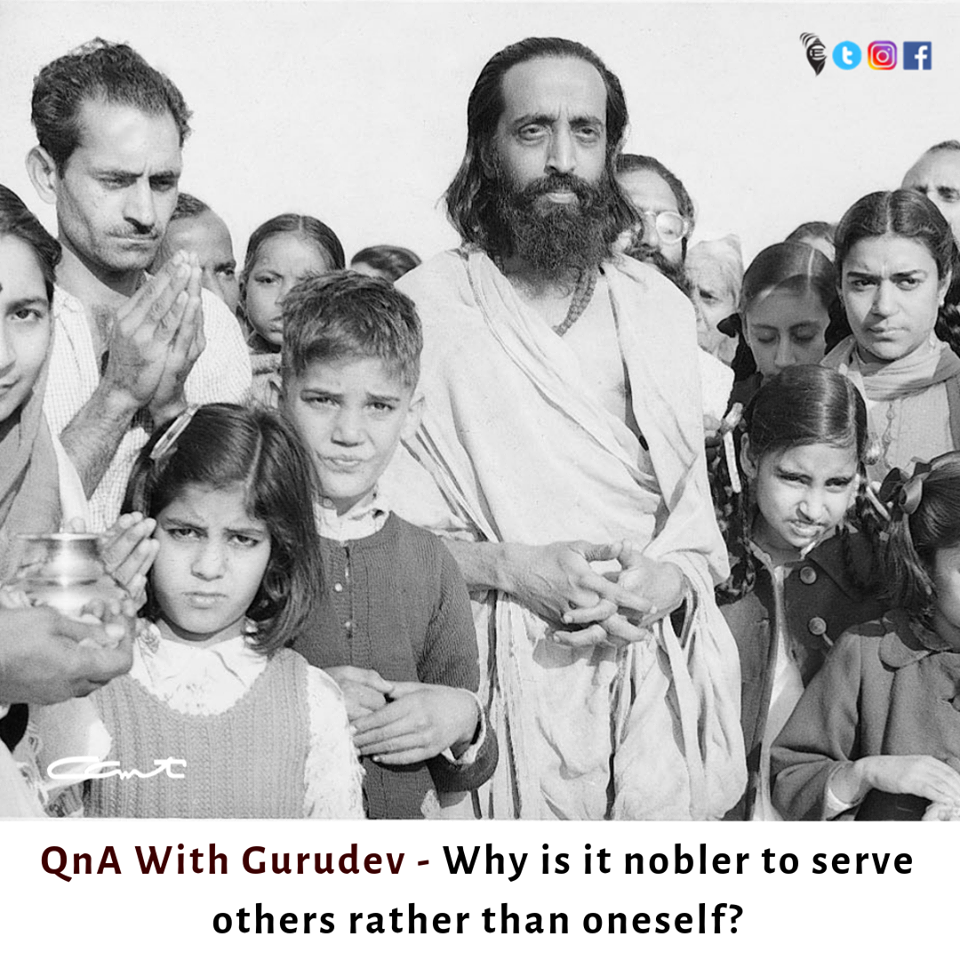SRIMAD MAHABHAGAVATHAM : 2.6 - Swami Krishnananda.
---------------------------------------------------------------------------------------------------------------------------
Tuesday, February 023, 2021. 09 : 39. AM.
CHAPTER-2. The Process of Creation - 6.
----------------------------------------------------------------------------------------------------------------------------
Incidentally, we have to say how the Bhagavata came into being at all. It was written by Krishna Dvaipayana Vyasa, the great sage, after he completed writing the Mahabharata and the seventeen Puranas. It is said in the beginning of the Srimad Bhagavata that after having completed the Mahabharata, the great epic into which every knowledge has been pressed into service by the wise Vyasa, he felt that something had been left out and he had not completed his work, and he was disturbed by this ‘something’ which he could not properly comprehend.
At that time Narada came and asked, “What is the problem? Why are you looking despondent?”
Vyasa replied, “I have written everything conceivable on dharma, artha and kama in the Mahabharata, yet I feel that something has been left out. I have to complete my mission, but I cannot properly picture what it is that I am expected to do.”
Then Narada said: yath? dharm?daya? c?rth? muni- vary?nuk?rtit?h?, na tath? v?sudevasya mahim? anuvarn?itah (S.B. 1.5.9). “You have not sufficiently glorified God in the Mahabharata. This is the defect of your work. You were busy with the narration of the epic—heroes, characters, and their vigorous opposition among themselves. You described the war in a mighty manner, but you have missed one thing. You have not adequately paid your honour, your homage, your tribute to the Almighty Creator of all this. In the Mahabharata epic, you have not expressed your love for God sufficiently. You have placed before people all the rules and regulations, but man cannot live only with rule, law and regulation. He also wants love. God is not merely a judge; He is also a parent, a father and mother. You have always considered God as a judge, as a terrifying person sitting at the top of creation and dispensing what is due to people. Maybe God is that, but He has a very kind and affectionate heart, which point you have missed in the Mahabharata.”
The glory of God is the subject of the Srimad Bhagavata. How can the glory of God be described? Is it possible for any mind to think what greatness God is? Whatever we say about Him is like a shadow in comparison to the radiance of the sun of the Supreme Being. Whatever we lack in our personality and find inadequate in this world, we seem to place it in God. We consider the opposite of all the defects of this world as the qualities of God. Everything is dying in this world, so we say God is deathless; everything is finite in this world, so we say God is infinite; everything is found only in one place in this world, so we say God is everywhere; everybody knows only certain things in this world, so we say God knows everything; everybody has a little strength, so we say God is all-powerful. That is to say, we are unable to positively describe what God Himself is, so we describe God as a counterpart of the defects and inadequacies that we see in creation. What other things can we say about God? Nobody has seen Him. We have only a feeling about Him, which we arrive at as a conclusion, as an inference from the circumstances of life and the difficulties we are passing through.
Thus originated the Srimad Bhagavata Mahapurana. It is the outcome of the samadhi-consciousness of Vyasa. The Bhagavata is called the Samadhi Bhasha. Vyasa’s language of samadhi is the Srimad Bhagavata Mahapurana. He has given us the final word, and there is nothing more to say. It is said that after Shakespeare wrote King Lear, he had nothing more to say; or some say that after Shakespeare wrote The Tempest, he threw his magic wand into the ocean as there was nothing more to write. Some such thing is also told about the Srimad Bhagavata. When Vyasa wrote the Srimad Bhagavata, there was nothing more for him to tell humanity. All knowledge is comprehended within this scripture. Vyasochhishtam jagat sarvam is an old saying: Whatever has been spoken from the mouth of Vyasa is all the knowledge about the world. Whatever we find in the world, we will find here; and whatever we cannot find here, we will not find anywhere else. That is the vastness and the depth of Vyasa’s writing.
========================================================================




Comments
Post a Comment